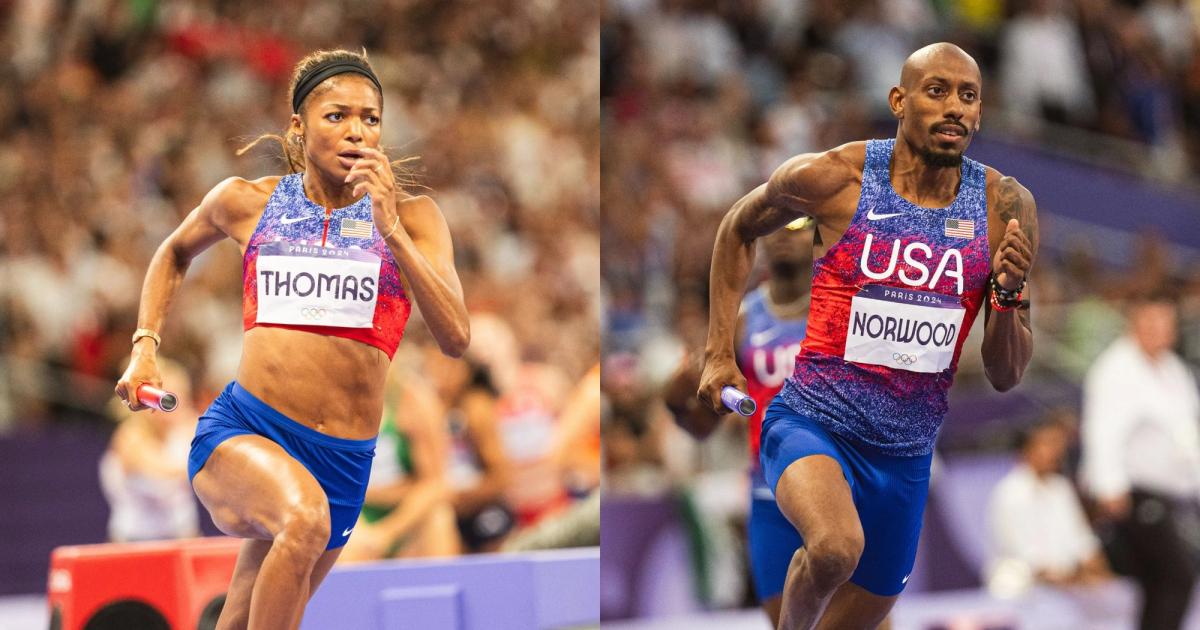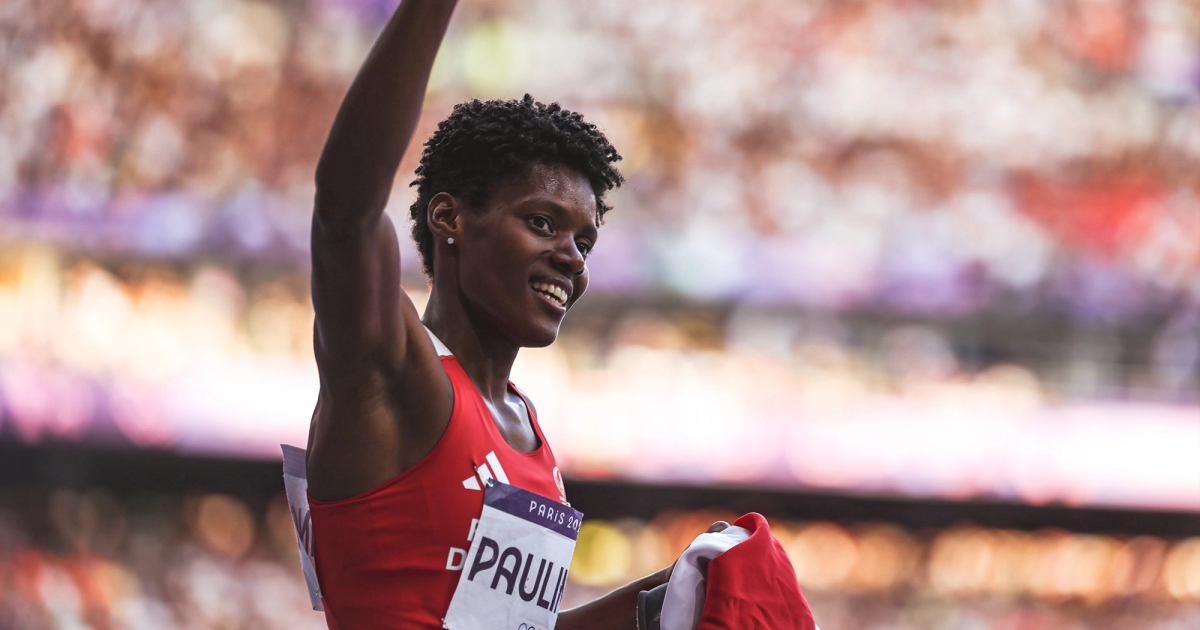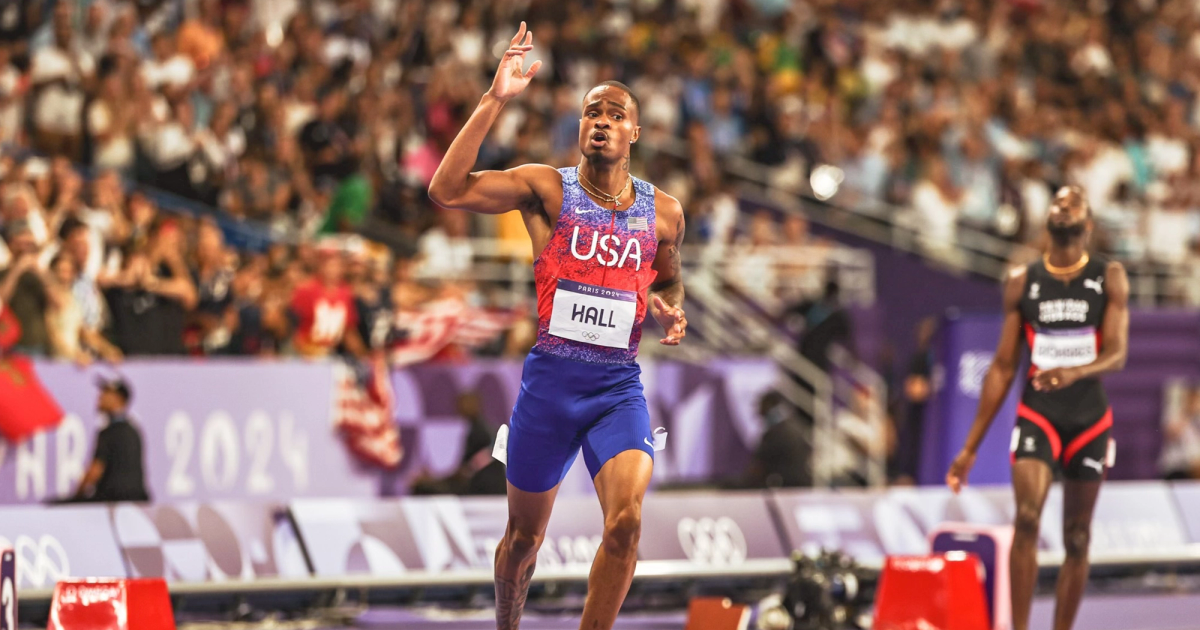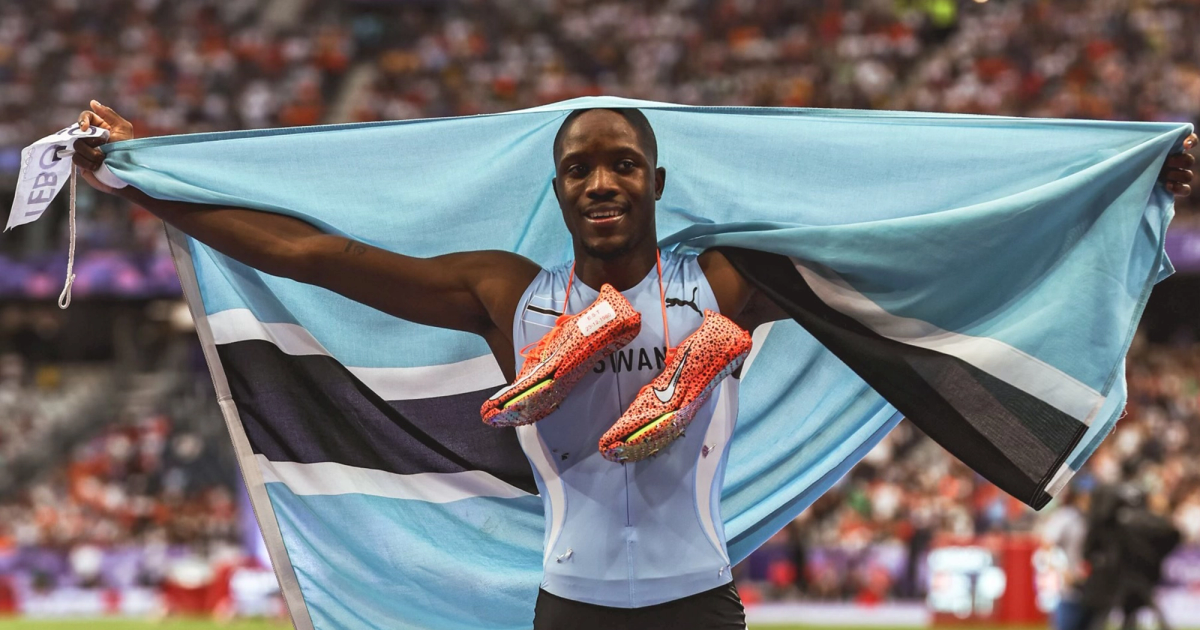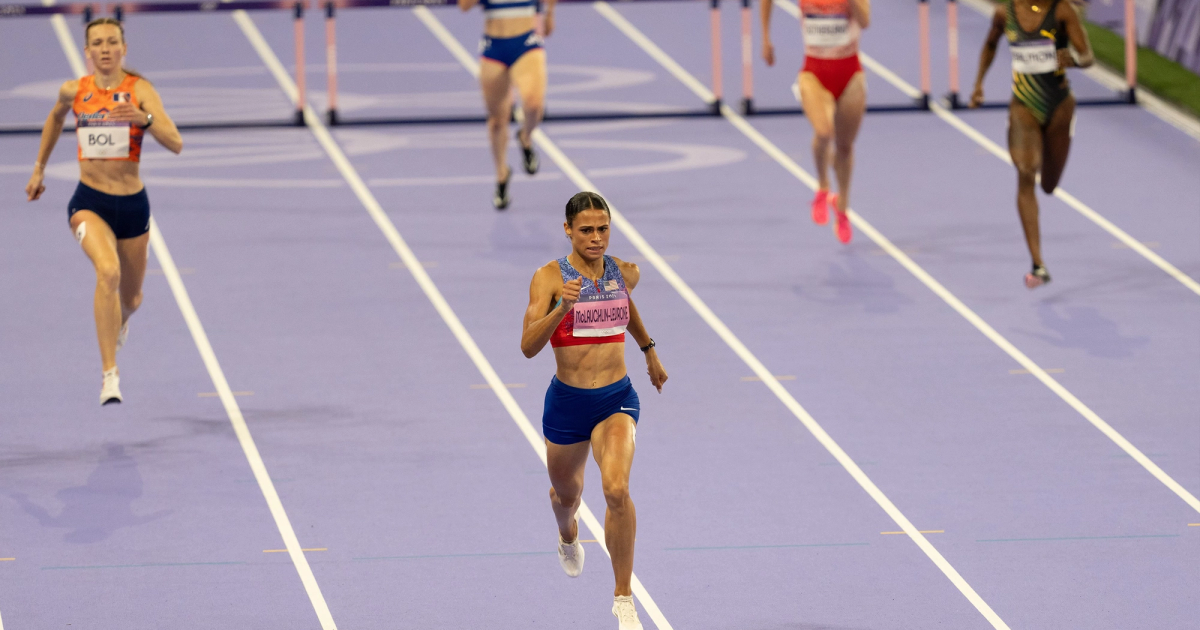By Paul Hof-Mahoney
August 11, 2024
Just before these Olympics got underway, World Athletics released the official timetable for the World Championships to be held in Tokyo next September. The thing that caught most people’s eyes was that WA decided to make the men’s and women’s 4x100m relays the final events, breaking from the tradition of closing out meets with the 4x400m relays.
Well, the athletes of the 33rd Olympiad did their best to prove why that is a terrible and unnecessary idea, because we just saw the two best 4x400m relays ever contested. The men went first, and it came down to a thrilling battle between Rai Benjamin and Letsile Tebogo on anchor that produced the second- and third-fastest times in history. With an appetizer that enticing, the women had some work to do to live up to expectation, but they absolutely did. Second through fifth-place all set national records, while the winning U.S. team came a mere tenth-of-a-second off the 36-year-old world record, running 3:15.27.
Here’s what you need to know:
- It was a tale of two qualifying rounds for the American teams, as the women recorded the fastest time by three seconds while the men finished third in their heat and nearly required a time qualifier to make it through. The men’s race saw the Olympic debut of 16-year-old Quincy Wilson on the first leg, but he was admittedly not 100% and the squad required a blistering 43.54 second split from Vernon Norwood on the second leg to get the team back in contention and eventually through to the final.
Men
- For the final, Wilson was swapped out with 400m hurdles champ Rai Benjamin, who once again assumed his role as one of the best anchors ever. Chris Bailey moved from anchoring the heat to leading off the final and he ran a brilliant leg, just barely bettered by Botswana’s Bayapo Ndori. But just like the morning before, Norwood ran the race of his life and came away with a 43.23 second split to move Team USA into the lead. Bryce Deadmon opened the gap on the third leg, giving Benjamin a .24 second advantage at the handoff.
- Tebogo got out hard and got directly on Benjamin’s shoulder, but there was very little movement between the two over the final 300m of their race. It looked like Tebogo might’ve started to move up on Benjamin on the outside on the home straight, but the hurdle strength of Benjamin allowed him to hold off the 200m Olympic champ despite a 43.04 second split.
- While the two teams in the front drew most of the attention, Great Britain “sneakily” took bronze in 2:55.83, the eighth-fastest time ever.
Women
- The women’s race was slightly less thrilling, but just as epic. Shamier Little split 49.48 on the first leg, which was over .75 seconds faster than anyone else in the field. She handed off to none other than Sydney McLaughlin-Levrone, who opened up one of the biggest gaps I’ve ever seen halfway through a 4x400m with an incredible 47.71 split. That gap continued to grow with Gabby Thomas’s third leg, and by the time anchor Alexis Holmes was on the back straight, the NBC broadcast showed that she was 42m ahead of her closest competitor. Safe to say, they won.
- The race for the other two medals (which was barely on screen given the American lead) was fascinating, as Femke Bol did Femke Bol things to bring the Dutch squad from fourth to silver with a 48.62 anchor leg split while Amber Anning ran 49.01 to fend off the Irish squad and deliver Team GB the bronze.
By the numbers:
Men
- The American men came up .14 seconds short of the world record set by Team USA at the 1993 World Championships. The closest anyone had come before that was, big shocker, also Team USA at the 2008 Olympics, but that squad was over a second off of the record. The frightening thing is that this version of Team USA ran the second-fastest time in history without the Olympic champion over the open 400m, Quincy Hall, who became the fourth-fastest man in history earlier this week. Hall told reporters he felt he strained something in the closing stages of his victory in the 400m, hence his absence on the relay team.
- This was the United States’ 19th Olympic gold in this event for the men. The rest of the world has combined for seven.
- Because he ran in the prelims, Wilson was awarded a gold medal alongside his teammates. Already the youngest male track and field athlete to ever compete for the U.S., he also becomes the youngest male athlete to win Olympic track and field gold ever.
- Tebogo’s 43.04 anchor leg split is the third-fastest split ever record, behind only Michael Johnson’s split of 42.91 from the 1993 world record race and Jeremy Wariner’s 42.98 split from the 2007 World Championships. Matthew Hudson-Smith of Great Britain split 43.09 on the second leg, which slots him fifth on the all-time list, just behind Michael Norman’s 43.06 from when he was still at USC (which is bananas – he did this at the NCAA West prelim).
- Botswana shattered their own African record, which previously stood at 2:57.27 from Tokyo, by nearly three seconds. Great Britain also broke their own 28-year-old European record by just under a second. Japan got close to breaking India’s Asian record – which was set last year in Budapest – in the qualifying round, then smashed it by .72 seconds in the final.
Women
- 3:15.27 is a time that no other relay team has come within a second-and-a-half of in the last 30 years. The only team to ever run faster was the Soviet quartet from the 1988 Olympics, who ran 3:15.17. This was the eighth consecutive victory by the U.S. women in this event and the ninth overall.
- Little got things off to a hot start with the fourth-fastest first leg split in history, handing off the baton in 49.48 seconds. McLaughlin-Levrone kept things rolling as her 47.71 second split is the third fastest in history, behind only a 47.70 split from Marita Koch and a 47.6 second split from Jarmila Kratochvilova.
- Spare a thought for the Irish team, as they came into this race with a good shot at winning the nation’s first ever relay medal. They ran spectacularly, shaving nearly three seconds off the national record they set in June and running a time (3:19.90) that would have been good for at least silver at every previous Olympics aside from 1988. And yet, they only finished fourth today.
Full results:
Men
1. United States - 2:54.43 OR
2. Botswana - 2:54.53 AR
3. Great Britain & NI - 2:55.83 AR
4. Belgium - 2:57.75 NR
5. South Africa - 2:58.12 NR
6. Japan - 2:58.33 AR
7. Italy - 2:59.72
8. Zambia - 3:02.76
9. France - 3:07.30
Women
1. United States — 3:15.27 AR
2. Netherlands — 3:19.50 NR
3. Great Britain & NI — 3:19.72 NR
4. Ireland — 3:19.90 NR
5. France — 3:21.41 NR
6. Canada — 3:22.01
7. Belgium — 3:22.40
Jamaica — DNF
Thanks for reading! Follow along with all the Olympics action on the CITIUS MAG YouTube channel, Twitter, and Instagram and don’t forget to subscribe to the CITIUS MAG newsletter for daily updates from Paris.

Paul Hof-Mahoney
Paul is currently a student at the University of Florida (Go Gators) and is incredibly excited to be making his way into the track and field scene. He loves getting the opportunity to showcase the fascinating storylines that build up year-over-year across all events (but especially the throws).
